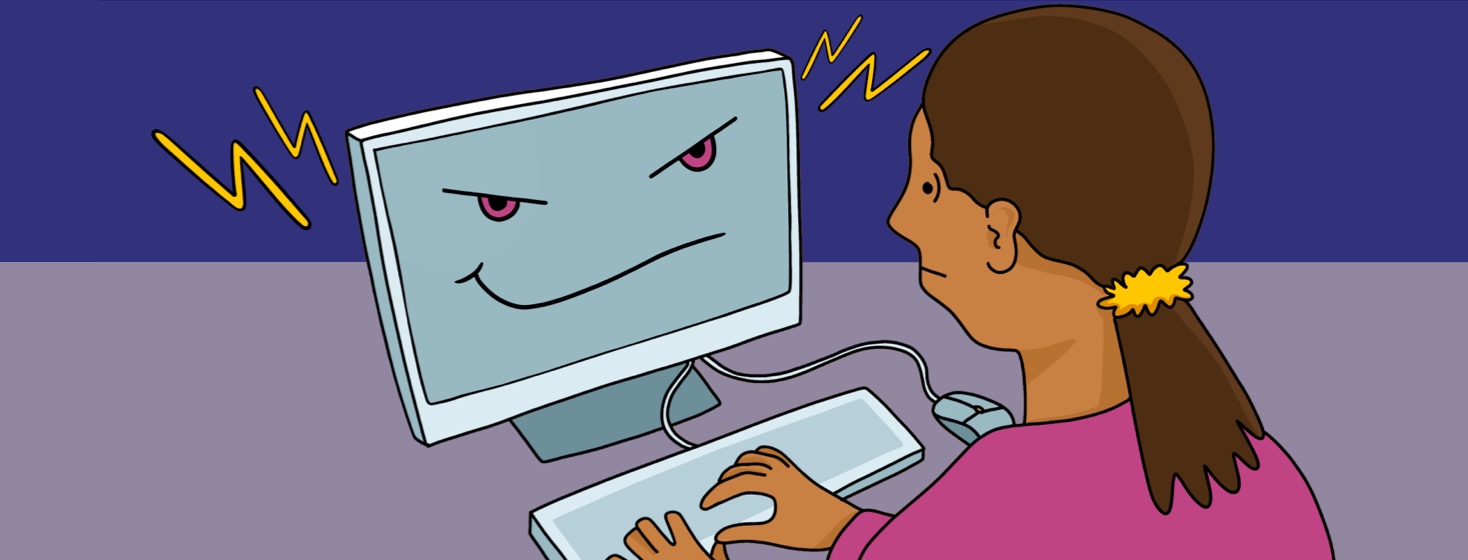How Computer Screens Affect My Seizures
In the nearly 60 years that I've had epilepsy, I've been able to identify a lot of triggers. But besides the usual – i.e., being negligent in taking my medicine, stress, little sleep, dehydration – a review of the last 20 years of my seizure journal shows that nearly 65 percent of my seizures occur either at the computer or when I've been working on it for a long time.
Can too much screen time cause seizures?
I'm a writer and TV producer. I need my computer. So it's been a quest of mine to figure out why this happens to me.
Is it because I’ve got a twinge of photosensitivity that otherwise doesn't bother me seeing flashing lights on TV, theater, or concerts? Is it the pixel count of the display monitors? The lighting in my office?
Maybe it's the stress I'm working under to get make my project deadlines? Or could it be that my cognitive abilities just don't feel as good working with a computer as the ol' days when I did everything by pen and paper?
I'll say that in my case, it's probably the choice: all of the above.
Electronic stress
I found a good term for this: "electronic stress." An article I read from the Hindu Times about computer screens being seizure triggers aptly named it as such.1
Humans weren't made to stare at screens all day long, nor were they intended to focus their eyes on tiny cell phone screen for reading epic-length texts and working on the computer for hours on end. It's no wonder this is causing folks things like eyestrain or headaches.
How I've adjusted my computer set-up
I read a blog post that gave me some tips I've been using for my computer setup: using a flat-paneled LCD screen and avoiding an older CRT monitors (because they flicker) for starters. Also making sure it is the highest resolution possible and a relatively large display (25–27 inches or so). I'm also trying to avoid eyestrain caused by a monitor that's too bright, and when working at night, using a floor lamp rather than a desk lamp.2
I also try to position my monitor below eye level because I've found that looking downward and at the middle of the screen helps me avoid eyestrain. I have it about an arm's length away from me and tilt it backward about 10-20 degrees. This has been a helpful position for me to lessen the impact on my eyes.
It's also important to take breaks to avoid seizures
British law mandates employers to plan for workers to take breaks when they use display screens, so why shouldn’t you do that yourself? It’s better to have more short breaks often than it is to have long breaks less often.3
My personal neurologist told me that I should take a 5-minute break every 20 minutes, preferably not only looking at something other than my screen, but getting out of my seat to get a drink or flex muscles. I've heard similar things elsewhere.
Taking breaks is so easy for me to ignore. When I get a brainstorm and the creative juices are flowing, I feel that I just have to keep writing because I'm afraid that my inspiration won't be rekindled after getting a glass of water. So I used to push, push, push until maybe I'd been writing for 2 or 3 hours nonstop! Uh-uh! Baaadddd!
Cumulative screen time still affects my seizures
I started taking breaks, and the creativity usually returned. But in later years, seizures might hit after returning to the computer after a long dog walk along with a pleasant family supper.
A deeper self-analysis of my epilepsy journal seems that no matter how faithful I am about taking breaks throughout the day, it appears that I'm playing "Russian roulette" on giving myself a seizure if the total amount of time I've accumulated at the computer for the entire day exceeds 6.5 hours.
Or is stress (caused by technology) triggering my seizures?
And you might just be like me: My memory for details on how to be productive on a computer program is downright pitiful! Whenever my computer locks on me or I fear I've deleted a file, I want to pick it up and throw it out the window! (Words spoken by Oscar-nominee Kier Dullea in the sci-fi hit thriller 2001: A Space Odyssey ring in my head, as he repeats a vocal command to a computer, once aware that it's gone psycho and is about to kill him: "HAL, I said open the pod bay doors ... HAL, open the bay doors." And the computer continues to ignore his fateful command.)
I'm married to an IT systems architect who isn't sympathetic to my computer problems. My 13-year-old is a genius who does all her school work on a computer and calls me "caveman" when I still say, "I'll Xerox it." All the commands of our TV remote controls and automatic Google commands throughout our home are staggering. I'm afraid I'll accidently press something wrong.
After making a wisecrack about wondering if psychologists had a word for that, I was breathless to learn they do: technophobia. It's people who are fearful and easily aggravated by computers, cell phones, and other AI.4
Stress, screens, and seizures... Oh my
Hey, all stress can trigger seizures, and my seizure journal hints that I might be "technophobic," too. Best hope for me is to ask people for help, focus on just doing one task at a time, and to take your time learning new technology so that I become comfortable with it.
That being said, it's time for me to get off this infernal machine, walk my dog, and wish you well with your computers.

Join the conversation